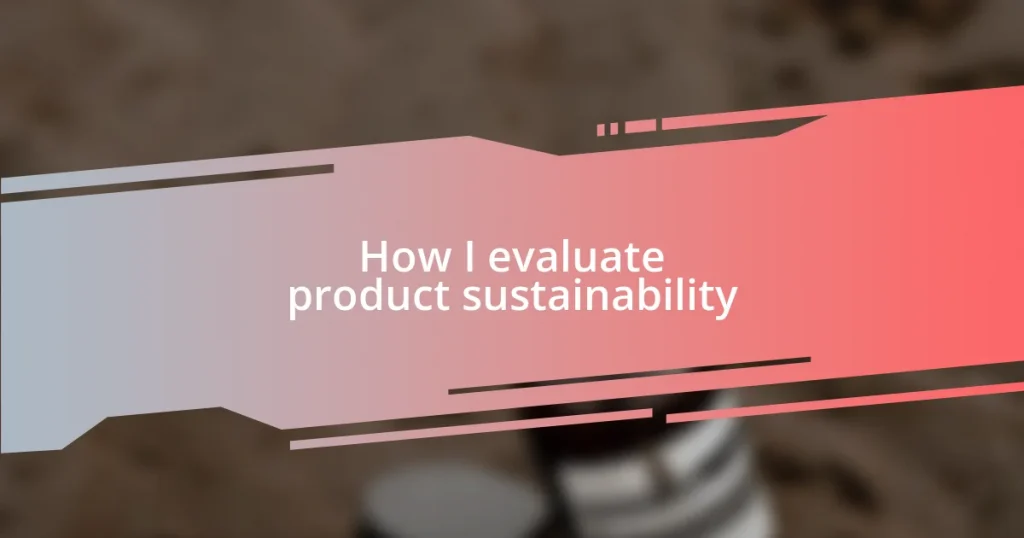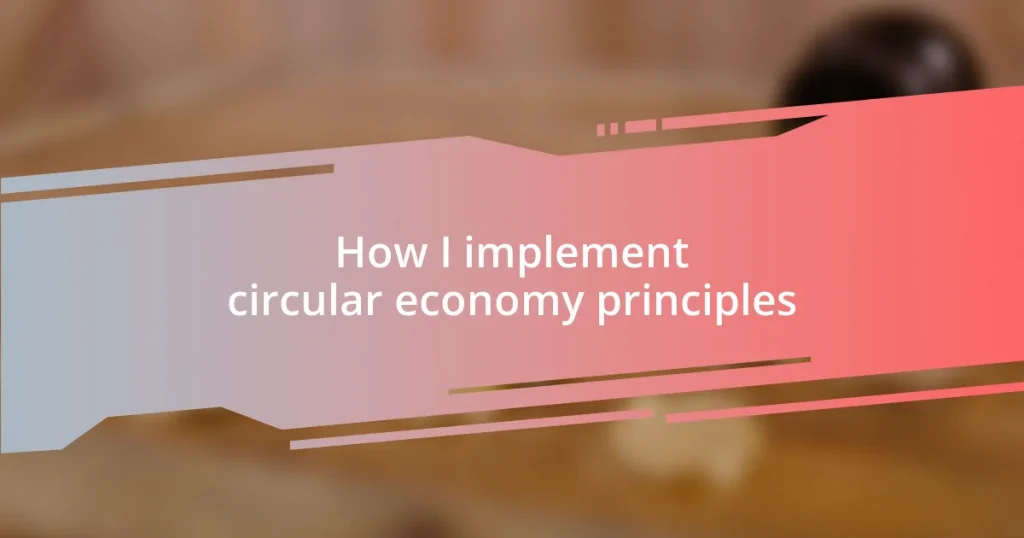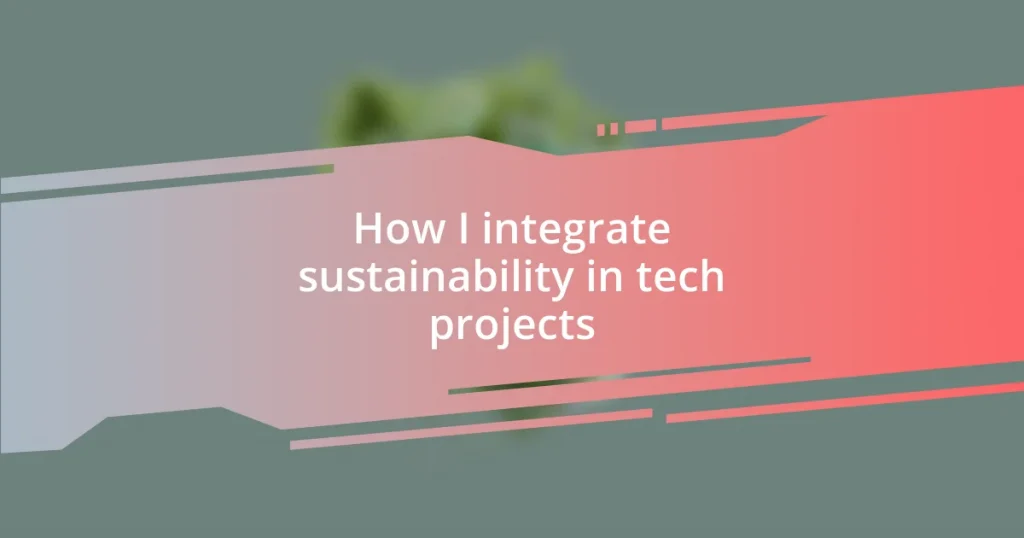Key takeaways:
- Tech-based volunteering enhances both community impact and personal growth, empowering individuals through the application of their skills to meaningful causes.
- Essential skills for effective volunteering include technical proficiency, adaptability, soft skills, and empathy to better address organizational needs and ensure impactful solutions.
- Measuring the impact of volunteering through feedback, quantifiable metrics, and storytelling deepens understanding of contributions and highlights the value of shared experiences.

Understanding tech-based volunteering
Tech-based volunteering allows individuals to leverage their skills and expertise in technology to support non-profit organizations and community initiatives. For me, this kind of volunteering turned out to be both fulfilling and eye-opening. I remember the first time I helped a local charity set up their website; it felt rewarding to see how such a simple act could make a significant difference for them.
When I think about the impact of tech volunteering, I often wonder: How often do we recognize the power our skills hold? Through coding, graphic design, or digital marketing, we have the unique ability to strengthen communities and enhance the capacity of charities. A few years ago, I partnered with a team to create an online training program for volunteers at an organization, and the excitement in their voices when they explained how it changed their outreach was priceless.
Each experience in tech-based volunteering has taught me something new. It’s become clear to me that these efforts not only serve the community but also foster personal growth. Have you ever felt stuck in a routine? Volunteering in tech was a way for me to recharge my creative energy and expand my network—it’s simply incredible how much we can learn when we share our knowledge with others.

Reasons to engage in volunteering
Engaging in volunteering offers a multitude of benefits that can resonate deeply on a personal and professional level. For me, volunteering isn’t just about giving back; it’s about cultivating skills and experiences that are often hard to find in conventional work settings. I once helped a small non-profit improve their data management system, and the gratitude I received from the team was a reminder of how impactful my contributions were. Seeing their stress ease as I guided them through the new tool reinforced my belief in the power of shared knowledge.
Here are some compelling reasons to consider volunteering:
- Skill Development: Volunteering provides opportunities to learn new technologies and hone existing skills in a practical environment.
- Networking: Connecting with like-minded individuals and professionals can open doors to new opportunities and collaborations.
- Personal Fulfillment: There’s a unique joy in knowing you’re contributing to a cause that matters, which can elevate your sense of purpose.
- Community Impact: Each small effort can lead to significant changes within communities, creating a ripple effect of positivity.
- Fresh Perspectives: Engaging with diverse groups can challenge your thinking and inspire creativity you might not discover otherwise.

Skills that enhance tech volunteering
When it comes to tech-based volunteering, a solid foundation in certain skills can make all the difference. Technical skills like coding and web development are invaluable, but soft skills, such as communication and problem-solving, can greatly enhance your impact. I recall a time when I collaborated with a group of volunteers to create a tutorial for digital tools; our diverse perspectives helped us produce clear, user-friendly guides that truly empowered the participants.
Additionally, I find that adaptability is a crucial skill in tech volunteering. In one of my projects, I had to quickly pivot from building a website to troubleshooting software issues. The ability to shift gears not only saved the day but also taught me the importance of being resourceful in uncharted territories. It’s moments like these that remind me how versatile and essential our skills can be, especially in the fast-evolving tech landscape.
Lastly, I believe that empathy plays a pivotal role in tech volunteering. Understanding the needs and challenges of the organizations you work with means that you can tailor your solutions effectively. For instance, while helping a community group with their social media strategy, I made an effort to listen to their story and challenges. This approach allowed me to propose strategies that resonated with their mission, making my contribution all the more relevant and rewarding.
| Skill | Description |
|---|---|
| Technical Skills | Coding, web development, and software proficiency enhance project effectiveness. |
| Soft Skills | Communication and problem-solving abilities foster collaboration and clarity. |
| Adaptability | The capacity to pivot quickly in response to project needs is invaluable. |
| Empathy | Understanding clients’ challenges ensures tailored and impactful solutions. |

Finding opportunities in tech
Finding opportunities in tech can sometimes feel like navigating a maze. I remember when I first stumbled across an online platform dedicated to connecting tech volunteers with nonprofits. The feeling of discovery was exhilarating! I felt like I had opened a door to a world where my skills could truly make a difference. Websites like VolunteerMatch or TechSoup are goldmines for finding projects that align with your interests and expertise.
As I explored these platforms, I learned that joining community forums can also be incredibly beneficial. Engaging in discussions on Reddit or LinkedIn helped me uncover opportunities I wouldn’t have found otherwise. It fascinated me to see how people shared their experiences and recommendations. Have you ever thought about how your network can serve as a guiding light in your search for these projects? I’ve often found that a simple conversation can lead to a goldmine of opportunities, sometimes even ones that aren’t widely advertised.
I also found that aligning my volunteer interests with my passions was key. For instance, I’ve always loved wildlife conservation, so when I found a chance to work with a tech team developing a database for species tracking, I jumped at it. The project resonated with my heart, and it was fulfilling to know I was contributing my skills to a cause that really mattered to me. Reflecting on this, I wonder how many fantastic projects remain hidden simply because people haven’t explored their own passions in volunteering? Trust me, when you seek out opportunities that ignite your passion, the work doesn’t feel like work at all.

Best practices for effective volunteering
Effective volunteering in tech requires a strategic approach to make a real impact. One of my go-to practices is to set clear, achievable goals before diving into a project. I remember working on a data management system for a small nonprofit. By defining specific objectives from the outset, we could track our progress and keep everyone aligned. Have you ever felt lost in a project? Establishing clear milestones can definitely help mitigate that confusion.
Another best practice is continuous communication with your team and the organization you’re helping. I once volunteered for a program where I initiated weekly check-ins with fellow volunteers and the client. This not only fostered a sense of community but also allowed us to address any challenges promptly. Think about how often you seek feedback in your work—why not extend that same practice to volunteering? It’s remarkable how a simple conversation can enhance collaboration and steer a project toward success.
Lastly, I find that reflecting on each volunteering experience brings significant insights. After completing a project, I took time to assess what went well and what I could improve. This practice allowed me to refine my skills and maintain a growth mindset. Have you ever taken a moment to reflect on your contributions? I believe it’s essential—celebrating achievements and learning lessons creates a fulfilling volunteering journey that goes beyond just the task at hand.

Balancing time and commitment
Finding the right balance between time and commitment in tech-based volunteering can indeed be challenging. I’ve had my share of moments where I overcommitted, thinking I could juggle multiple projects simultaneously. It usually led to a sense of overwhelm. Reflecting on those times, I’ve realized it’s all about setting realistic boundaries. Have you ever felt drained from trying to do too much? Trust me, it’s perfectly okay to say no or choose to dedicate your time to fewer projects that truly resonate with you.
One tactic that’s worked wonders for me is to create a volunteering schedule. By breaking down my week and allocating specific time slots for volunteering, I found a renewed sense of purpose. I remember working on a website overhaul for a local charity, dedicating just two evenings a week. This approach gave me the breathing room to ensure I could still manage my personal commitments without feeling like I was sacrificing quality in my volunteer work. Have you tried mapping out your time? It can transform your experience.
I’ve also learned the importance of being upfront about my availability with the organizations I support. In one instance, I volunteered for an educational tech initiative but had to change my capacity due to a full-time job. By communicating openly with my team, we adjusted our timelines, and I was able to contribute effectively without compromising my professional responsibilities. This transparency ensured we maintained a strong working relationship. Isn’t it amazing how much clearer our paths become when we communicate our limitations? Balancing time and commitment is a dance, and honestly, I prefer a rhythm that feels natural rather than forced.

Measuring impact of your volunteering
One effective way I’ve found to measure the impact of my volunteering is by gathering feedback from the community or organization I’m assisting. I vividly recall a project where we developed an online learning platform for at-risk youth. After we launched, I reached out to the participants to ask about their experiences and collected their thoughts. Their responses were eye-opening! It wasn’t just about the technology we developed; they expressed gratitude for feeling seen and supported. Have you ever asked for feedback? It can sometimes lead to surprising revelations that enhance your impact.
I’ve also learned to track quantifiable metrics, like user engagement statistics or project completion rates. This was particularly rewarding when I worked on a fundraising app for a local charity. By analyzing downloads and donations before and after our launch, we discovered a significant increase in contributions. It felt gratifying to see hard data that validated our efforts. How do you measure success in your projects? Finding those tangible indicators creates a sense of accomplishment that fuels your passion for future volunteering.
Finally, I believe in the power of storytelling to illustrate impact. During my time volunteering with a tech initiative, we documented individual success stories from beneficiaries. One young man went from struggling to complete his education to becoming a mentor for others. Sharing such narratives not only inspires others but reinforces the true purpose of our work. Have you ever shared a success story from your experience? Reflecting on the human side of our contributions deepens our understanding of volunteering’s value beyond mere results.















